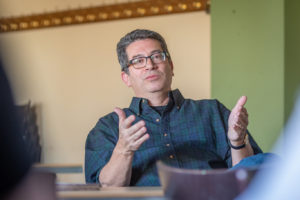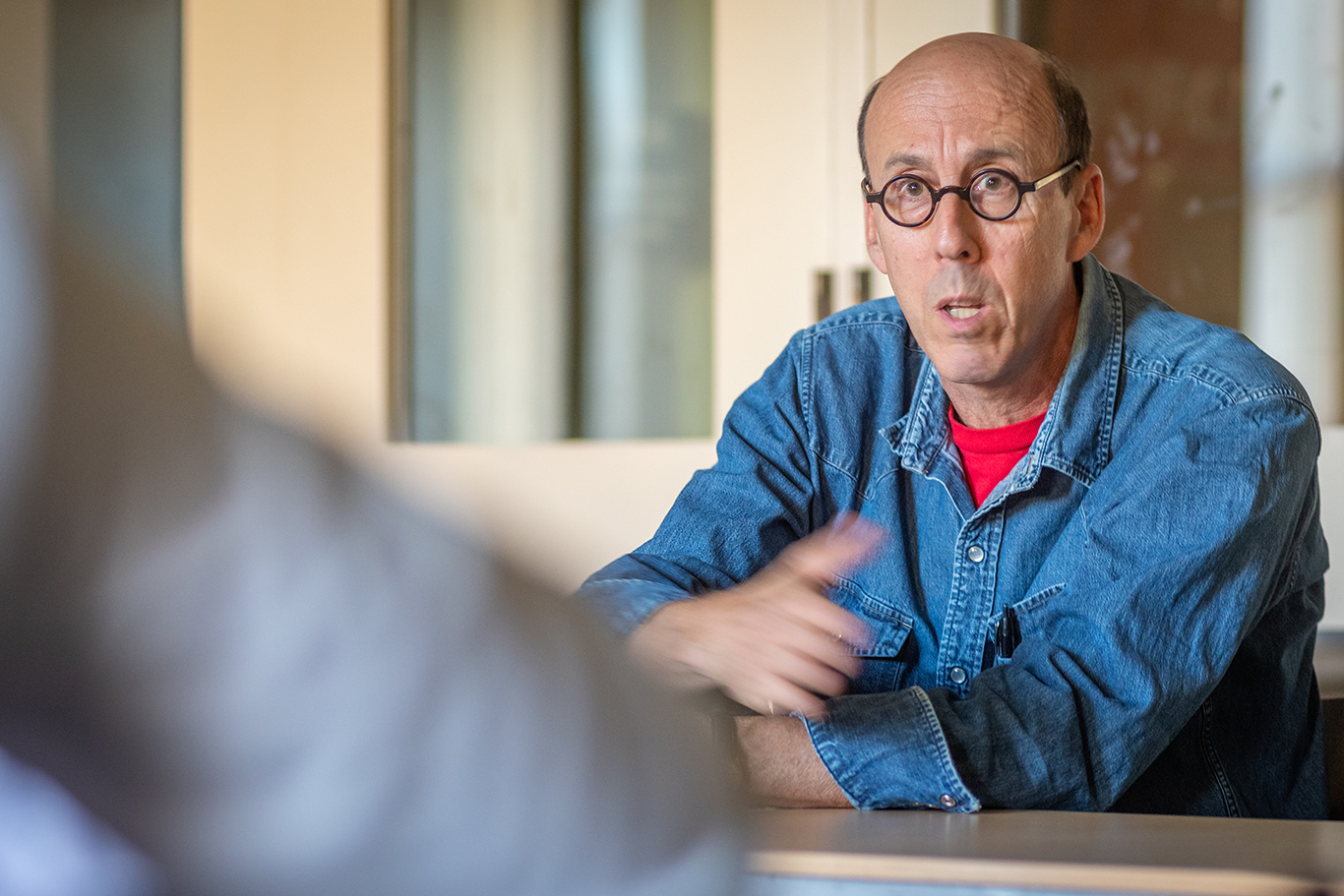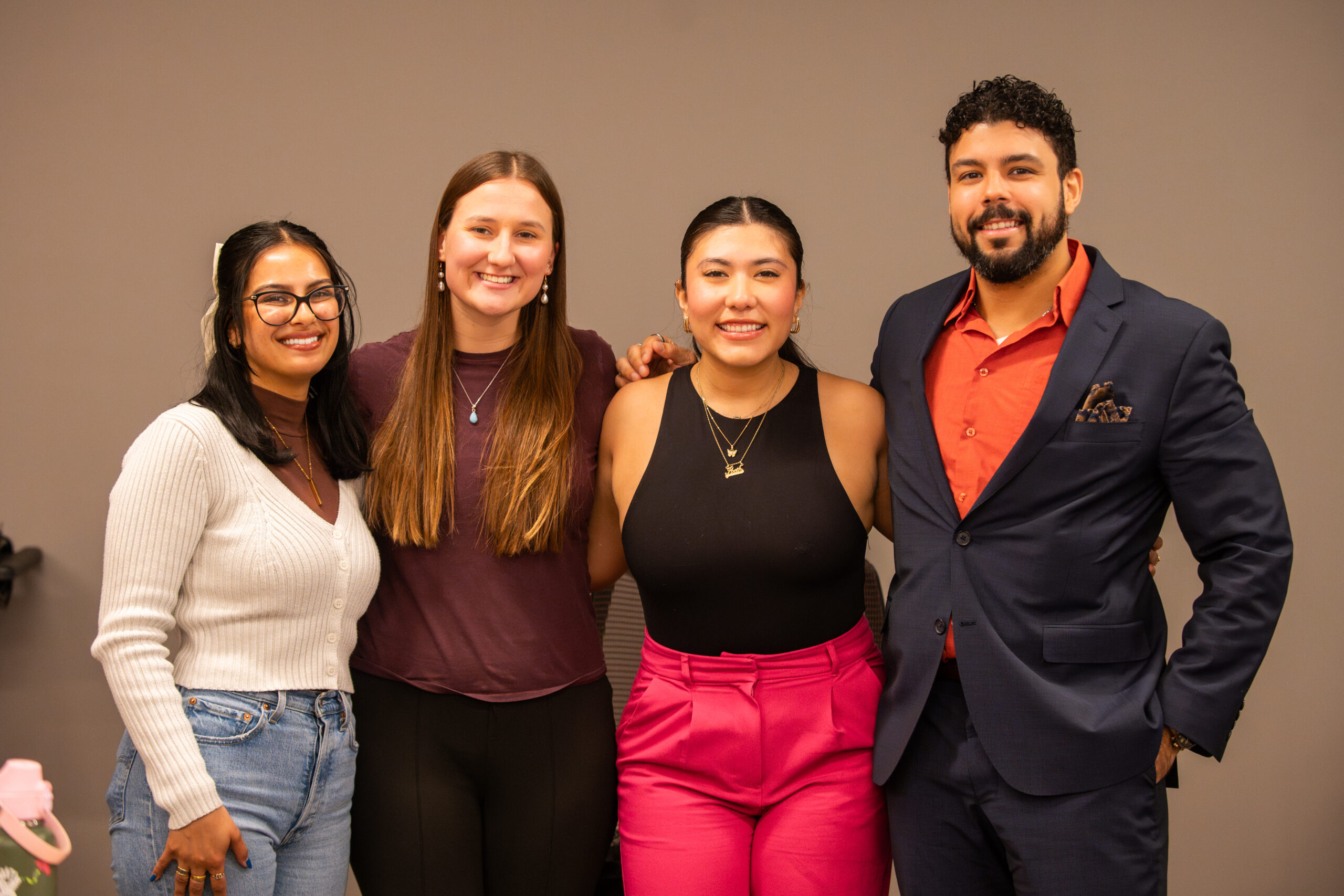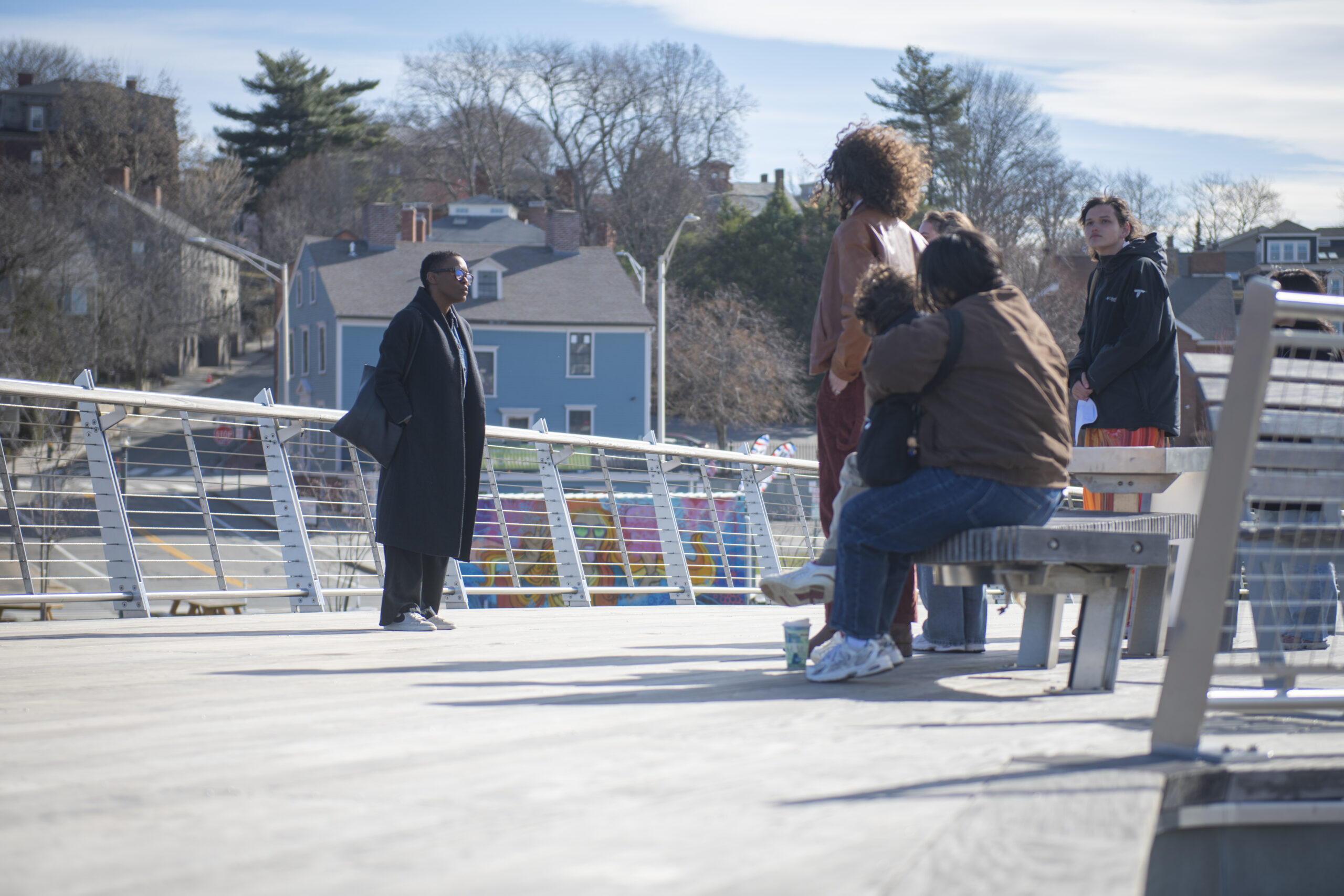Be passionate, be focused — and get angry — when driving change, they advise
Warren Heyman ’77 describes his life in activism
For Warren Heyman ’77 and Drew Astolfi ’91, a Clark education was the catalyst to careers in activism and lives centered around community organizing. Their enthusiasm for, and love of, their work was on display as they spoke to Clark students on October 24 about career opportunities in the field of social justice.

Astolfi works for Community Change, an organization promoting grassroots change in communities across the country. He found his passion after getting involved in social justice issues during his undergraduate years at Clark, where he had “a lot of freedom and encouragement to make things happen.”
“Clark, and Worcester, gives you the gift of hands-on experience and seeing the world how it really is,” he said. “You learn more at Clark doing it yourself as opposed to watching someone else do it in New York.”
Heyman, a union organizer at UNITE HERE, said everything he’s done in his career, he learned at Clark. “It was a very heady time period where everything was up for grabs and we were taught to question everything – authority, assumption, life,” he said of his time on campus in the mid-1970s. “The University was open to, and fostered, this ideology.”
While at Clark, he worked as a community organizer in Worcester’s Main South neighborhood (among his tasks: improving the condition of local street lights). Today, he is unionizing hotel workers and emphasizing the importance of being skilled and disciplined to effect change.
Both men spoke in glowing terms about their Clark professors, who sparked their enthusiasm for organizing. Each had experiences building committees, discussing demands, and negotiating for change while they were still in school. “We didn’t always get everything we wanted, but it was a great learning ground,” said Astolfi.
Several students asked if community activism is a viable career. The answer from both was a resounding “yes.” Students listened intently as Heyman and Astolfi described their experiences of trying to make the world a better place.
“You can have a career in organizing. It’s not 9 to 5, and it’s hard, but it is really rewarding,” Heyman asserted.
“It’s the best thing I’ve ever done in my life,” said Astolfi. Both emphasized that it is possible to earn a living, have a family, and build a life working in the social justice field.
Experienced organizers are desperately needed, they said. Astolfi advised students to find an organizer whom they can shadow, a strategy that allowed him learn about the profession through personal observation. He said it’s helpful to be passionate, even angry, about wanting to make things happen.
Heyman echoed that sentiment. “Focus on a problem on campus, be a pain, and learn stuff,” he urged. He said Clark students can learn about power structures first-hand and use their experiences to inform their careers.
In describing their work, both men acknowledged that the biggest challenge is fear – fear of knocking on doors, fear of failure, and fear of injustice. “The challenge of the organizer is to inspire and motivate someone to take a risk,” Heyman said. “Changing people’s lives is the best feeling an organizer will experience.”
While they may not win every struggle, both feel lucky to be contributing. Losses are fuel for the next fight, they said.
Clark students can connect with alumni for career guidance, internships, employment opportunities, and networking by joining ClarkCONNECT.





